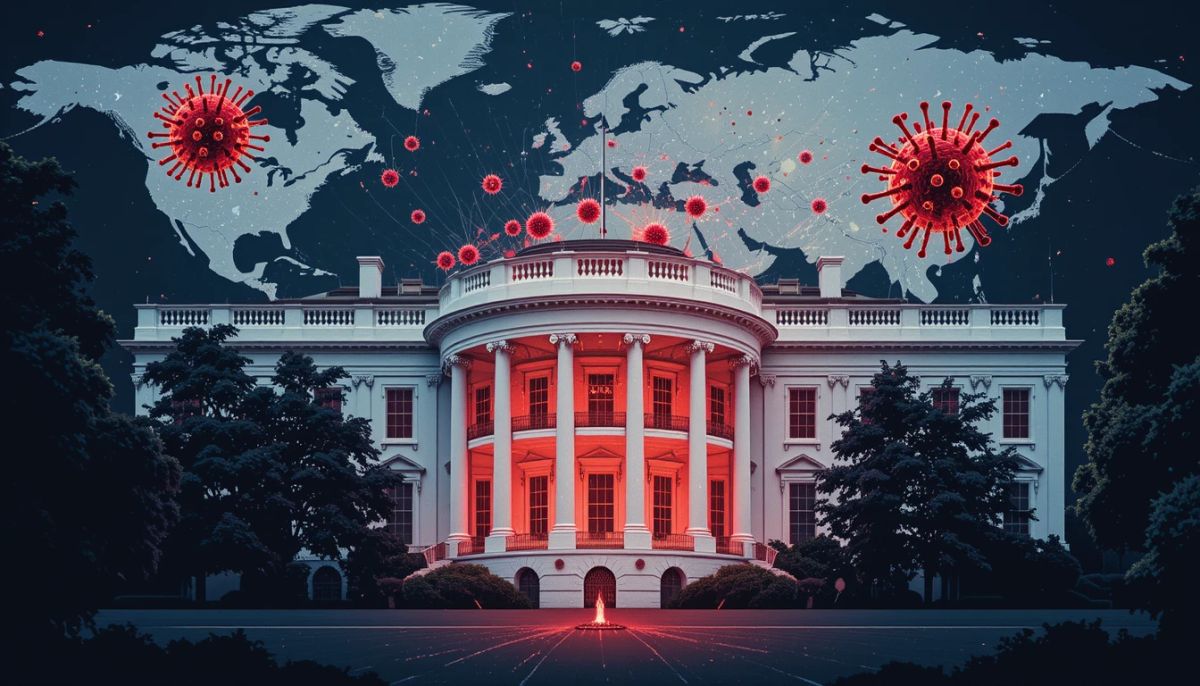The origins of the COVID-19 pandemic have been a subject of intense debate and speculation since the virus first emerged in late 2019. Recently, a significant shift in the official narrative has occurred, with the CIA now leaning towards the lab leak theory as the most probable explanation for the outbreak. This development has reignited discussions about pandemic preparedness, international cooperation, and the intersection of science and politics.
The CIA's New Assessment
On January 25, 2025, the Central Intelligence Agency (CIA) announced a pivotal change in its assessment of the COVID-19 origins. The agency now believes that a laboratory-related incident is more likely to have caused the pandemic than a natural origin. This shift in stance marks a significant departure from previous evaluations and aligns with theories that were once dismissed as speculative.
Key Points of the CIA's Statement:
- The agency now considers a research-related origin more probable than a natural one.
- This conclusion is held with "low confidence," indicating limited supporting evidence.
- Both lab leak and natural origin scenarios remain possible.
- The assessment is based on a review of existing data, not new intelligence.
Political Implications
The lab leak theory has been a contentious political issue since the early days of the pandemic. Former President Donald Trump and his administration were among the first high-profile figures to suggest that the virus might have originated from a lab in Wuhan, China. At the time, these claims were met with skepticism and often labeled as conspiracy theories by political opponents and some members of the scientific community.
White House Confirmation
In a striking turn of events, on January 31, 2025, the White House Press Secretary, Karoline Leavitt, officially confirmed the lab leak theory during a press briefing. This announcement not only vindicated the previous administration's claims but also highlighted the complex relationship between scientific inquiry and political discourse.
Scientific Debate Continues
Despite the CIA's assessment and the White House's confirmation, the scientific community remains divided on the origins of COVID-19. Many experts continue to argue that existing data strongly supports a natural origin, likely resulting from wildlife-to-human transmission. This ongoing debate underscores the challenges in definitively tracing the origins of pandemics and the importance of rigorous scientific investigation.
The Role of the Wuhan Institute of Virology
The Wuhan Institute of Virology (WIV) has been at the center of the lab leak hypothesis. Located approximately 40 kilometers from the Huanan wet market where the initial outbreak was reported, the institute has been scrutinized for its research on coronaviruses. Questions about safety protocols, research practices, and potential connections to the Chinese military have fueled speculation about the lab's role in the pandemic's origin.
International Relations and Transparency
The lab leak theory has significant implications for international relations, particularly between the United States and China. The suggestion that the virus may have originated from a Chinese laboratory has strained diplomatic ties and raised questions about transparency and cooperation in global health crises.
Calls for Further Investigation
In light of the CIA's assessment, there have been renewed calls for a thorough and transparent investigation into the origins of COVID-19. U.S. lawmakers, including those on the Select Subcommittee on the Coronavirus Pandemic, have pushed for the declassification of relevant documents and urged for increased cooperation from Chinese authorities.
The Importance of Pandemic Preparedness
Regardless of the virus's ultimate origin, the COVID-19 pandemic has highlighted the critical need for improved global pandemic preparedness. Lessons learned from this crisis are shaping policies and strategies to better detect, respond to, and mitigate future outbreaks.
Key Areas of Focus:
- Enhanced surveillance systems for early detection of novel pathogens
- Improved international cooperation and data sharing
- Strengthened research safety protocols in laboratories worldwide
- Development of rapid response capabilities for vaccine and treatment production
Conclusion
The CIA's revised assessment of COVID-19's origins marks a significant moment in the ongoing investigation into the pandemic's beginnings. While the debate is far from settled, this development underscores the importance of continued scientific inquiry, international cooperation, and transparent communication in addressing global health challenges.
As we move forward, it is crucial to balance the pursuit of truth with the need for global unity in combating current and future health crises. The lessons learned from the COVID-19 pandemic, regardless of its origins, will be instrumental in shaping our approach to public health and international relations for years to come.
FAQs
Does the CIA's assessment definitively prove the lab leak theory?
No, the CIA's assessment suggests a lab leak is more likely but is held with "low confidence," meaning there is still uncertainty.
How has the scientific community responded to the CIA's assessment?
The scientific community remains divided, with many experts still supporting a natural origin theory based on available evidence.
What impact does this have on U.S.-China relations?
The lab leak theory has strained diplomatic relations and raised questions about transparency in international health crises.
Are there ongoing investigations into the origins of COVID-19?
Yes, various agencies and international bodies continue to investigate the origins of the virus.
How does this development affect future pandemic preparedness?
It emphasizes the need for enhanced global surveillance, improved safety protocols in research facilities, and better international cooperation in health crises.
